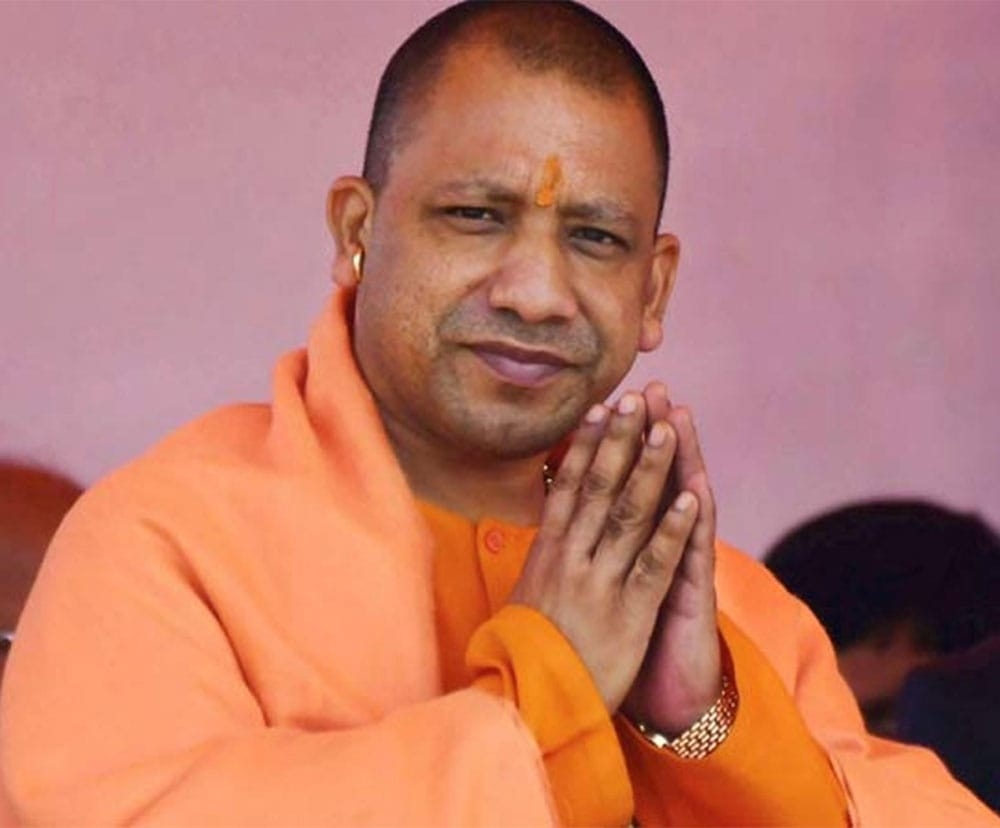


As the 2024 Lok Sabha elections approach, Prime Minister Modi's budget allocations have favored Bihar and Andhra Pradesh, thanks to the political power of their regional leaders Nitish Kumar and N. Chandrababu Naidu. However, Uttar Pradesh Chief Minister Yogi Adityanath, once a key ally of Modi, has been left behind with fewer financial support for his state. This illustrates the impact of regional leaders and electoral strategies on budget distribution, ultimately reflecting Yogi's diminishing influence. To learn more about the influence of politics on financial priorities, watch the full video.
Political Influence on Budget Allocations: Andhra Pradesh and Bihar Benefit, Uttar Pradesh Lags
As the 2024 Lok Sabha elections draw near, Prime Minister Narendra Modi's budget allocations have been shaped by the political power of regional leaders. Notably, Andhra Pradesh and Bihar have received favorable funding, while Uttar Pradesh, once a key ally, has been allocated less financial support.
Background:
The Bharatiya Janata Party (BJP) has historically maintained strong ties with regional parties such as the Janata Dal (United) (JD(U)) led by Nitish Kumar in Bihar and the Telugu Desam Party (TDP) led by N. Chandrababu Naidu in Andhra Pradesh. These alliances have often influenced budget decisions.
Current Allocations:
In the Union Budget 2023-24, Andhra Pradesh received a significant allocation of ₹36,629 crores, an increase of 23% from the previous year. This funding will support infrastructure projects, agriculture, and social welfare programs.
Similarly, Bihar received ₹13,451 crores, a modest increase of 6%. The allocation will focus on infrastructure development, education, and healthcare.
In contrast, Uttar Pradesh, governed by the BJP's Yogi Adityanath, received a relatively lower allocation of ₹14,561 crores, a decrease of 3% compared to 2022-23. This decline has been attributed to Adityanath's diminished influence within the BJP.
Analysis:
The disparity in budget allocations reflects the BJP's strategy to nurture alliances with regional heavyweights like Nitish Kumar and N. Chandrababu Naidu. These regional leaders command significant political support in their respective states, and the BJP aims to capitalize on their influence by providing their constituencies with financial benefits.
Conversely, the reduced funding for Uttar Pradesh suggests that Adityanath's standing within the BJP has weakened. This could be due to several factors, including his controversial statements and policies, as well as the party's desire to consolidate power in other states.
FAQs:
1. Why has Andhra Pradesh received a significant budget allocation?
Answer: Andhra Pradesh has a strong alliance with the BJP, led by N. Chandrababu Naidu, who commands significant political influence in the state.
2. How has Nitish Kumar influenced budget allocations for Bihar?
Answer: Nitish Kumar's JD(U) is an important ally of the BJP, and his influence has secured increased funding for infrastructure, education, and healthcare in Bihar.
3. Why has Uttar Pradesh received less financial support than expected?
Answer: Yogi Adityanath's influence within the BJP has diminished, leading to reduced budget allocations for his state.
4. What are the consequences of political influence on budget distribution?
Answer: Political influence can create disparities in funding across states, favoring those with strong political alliances and neglecting areas with weaker support.
5. Are there historical precedents for political influence on budget allocations in India?
Answer: Yes, similar patterns have been observed in the past, with regional leaders leveraging their political power to secure favorable budget allocations for their constituencies.

Prime Minister Narendra Modi celebrates Diwali with Navy personnel aboard INS Vikrant, praising the warship's role in instilling fear in Pakistan. He commemorates India's military might and the bravery of armed forces in Operation Sindoor, while also highlighting INS Vikrant as a symbol of Atmanirbhar Bharat and Made in India. The festive celebrations on board consisted of cultural performances and an air power demonstration, making the occasion deeply symbolic and unforgettable.

Prime Minister Narendra Modi celebrated Diwali with the crew of India's indigenous aircraft carrier INS Vikrant, describing the ship as a symbol of Aatmanirbhar Bharat and Made in India. He saluted the Indian Navy, Air Force, and Army for their courage, skill, and coordination, especially during the 1971 victory over Pakistan. The Prime Minister also highlighted the progress towards self-reliance in India's defence production, with thousands of items now being manufactured domestically and a new indigenous warship or submarine being inducted into the Navy every 40 days on average.

On October 21, Defence Minister Rajnath Singh will honor the sacrifices made by police personnel at the National Police Memorial on Police Commemoration Day. The Memorial serves as a symbol of the strength and selflessness of police officers who have laid down their lives in the line of duty. The central sculpture, 'Wall of Valour', and museum at the Memorial provide a sense of national identity and pride for Police Forces.

Prime Minister Narendra Modi made a surprise visit to INS Vikrant, India's flagship aircraft carrier, on Diwali eve 2025. This marked his first visit to the high seas to celebrate with the Navy personnel stationed there. His visit included cultural activities, a yoga session, and an inspiring address to the naval staff, further strengthening the bond between the leader and the armed forces.

Prime Minister Narendra Modi celebrated Diwali with the Indian Navy on the INS Vikrant aircraft carrier stationed off the coast of Goa and Karwar. The cultural programme organized by the Navy was described by PM Modi as an unforgettable experience. He also praised the dedication and creativity of the naval personnel and highlighted the success of the armed forces in Operation Sindoor with a patriotic song "The Vow of Sindoor". In addition, PM Modi also addressed the country's security forces and lauded their efforts in combating Naxalism.

In a powerful Diwali speech on board INS Vikrant, Prime Minister Narendra Modi lauded the coordination of India's armed forces in Operation Sindoor, which led to a swift surrender by Pakistan. He also emphasized the importance of self-reliance in strengthening the armed forces and highlighted India's progress in manufacturing essential military equipment domestically. He further announced India's goal to become a top defence exporter, with a significant increase in defence exports in the last decade.

Prime Minister Narendra Modi continued his tradition of celebrating Diwali with India's armed forces by visiting the INS Vikrant off the coast of Goa and Karwar. He praised the Navy personnel for their dedication towards the security of the nation and expressed his gratitude to the families of the brave soldiers. PM Modi also witnessed an impressive display of precision and prowess during an Air Power Demo on INS Vikrant, showcasing the technological excellence of the Indian Navy.

Prime Minister Narendra Modi celebrated Diwali 2025 with Indian Navy personnel aboard the indigenous aircraft carrier INS Vikrant, highlighting the ship's strength and psychological impact on adversaries. Commissioned in 2022, the carrier is a symbol of India's self-reliance and strategic resolve. PM Modi praised the bravery and dedication of the naval personnel, reinforcing the bond between the armed forces and the government.

The Allahabad High Court has directed the Jailer of Hisar Central Jail in Haryana to provide an explanation on how self-styled Godman Sant Rampal, currently held in the jail, is able to write and distribute books that allegedly target Hindu deities. This comes after a plea was filed by Hindu Front for Justice, calling for a ban on the books and action against Rampal. The petition alleges that the books contain offensive and provocative language and have been distributed through electronic communication platforms, causing disharmony between religious communities.

Following the latest string of scandals involving Prince Andrew, King Charles was photographed attending a Sunday morning service near his Scottish estate. The King wore a solemn expression as he drove to Crathie Kirk, displaying tension amidst a tumultuous time for the royal family. Recently, Prince Andrew announced his resignation from the Duke of York and membership of the Order of the Garter, the oldest chivalric order in the UK.